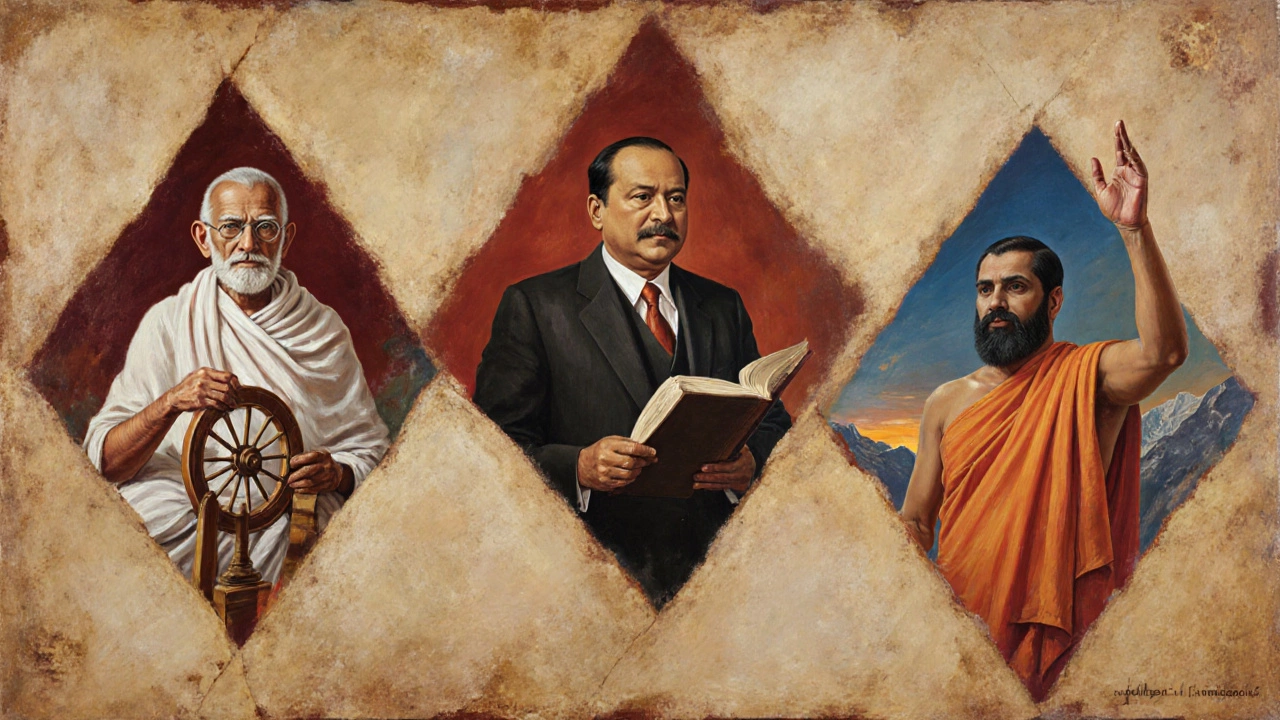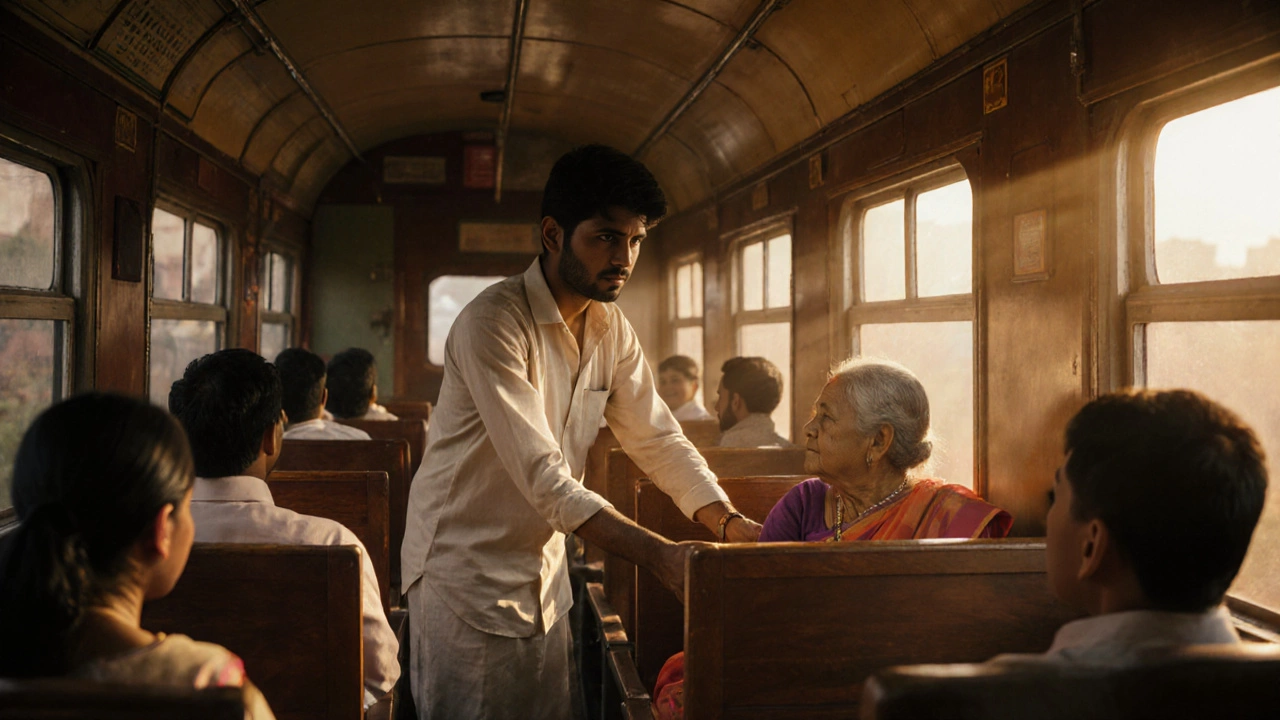Key Takeaways
- Respect in India is tied to self‑less service, moral integrity, and national impact.
- Historical icons like Mahatma Gandhi and Dr. B.R. Ambedkar set the benchmark for respect.
- Contemporary figures such as Sudha Murty and A.P.J. Abdul Kalam continue the tradition.
- Public polls, national awards, and lasting social change are common measures of respect.
- When you look at all criteria, Mahatma Gandhi emerges as the most respectful person in India.
What Does Respect Mean in the Indian Context?
Respect in India isn’t just a polite greeting; it’s a deep‑rooted value that combines humility, service, and the ability to inspire trust across diverse communities. It shows up in everyday behavior-like offering a seat to an elder-but also in grand gestures, such as fighting for equality or uplifting the poor.
Because of this layered meaning, identifying the "most respectful" individual requires looking at both personal conduct and the broader impact on society.
Historical Icons Who Defined Respect
Mahatma Gandhi is a pivotal leader of India's independence movement, renowned for his philosophy of non‑violence (Ahimsa) and civil disobedience (Satyagraha). Born 1869, he led the nation to freedom with simple living, truth‑telling, and unwavering respect for every human being. His life story is taught in schools across the country, and his name is synonymous with respect worldwide.
Another towering figure is Dr. B.R. Ambedkar - the chief architect of the Indian Constitution and a relentless champion for Dalit rights. His legal expertise and courage to confront caste oppression earned him deep admiration and lasting reverence.
Spiritual respect often circles back to Swami Vivekananda - a philosopher who introduced Vedanta to the West and advocated for youth empowerment. His speeches sparked confidence in a nation emerging from colonial rule.
While these three are widely celebrated, many other legends have carved respectful legacies.

Contemporary Role Models Carrying the Torch
Respect isn’t frozen in history; it evolves. Today, several modern leaders embody the same values.
- A.P.J. Abdul Kalam - India’s ‘Missile Man’ and 11th President, known for his humility and outreach to schoolchildren. He blended scientific excellence with a farmer‑like simplicity that won hearts.
- Sudha Murty - philanthropist and author who founded the Infosys Foundation, dedicating her life to education and rural development. Her grassroots work earns consistent admiration.
- Ratan Tata - industrialist and philanthropist whose corporate ethics and social contributions set a high bar for business leaders. He’s often quoted for his respect towards employees and society.
- Sushma Swaraj - former External Affairs Minister, admired for her quick, compassionate assistance to Indians abroad. Her willingness to help individuals worldwide reflected pure public service.
- Mother Teresa - Catholic nun who devoted her life to the poorest of the poor in Kolkata, receiving global reverence for selfless care. Though not Indian by birth, her work made her an Indian icon of respect.
How Do We Measure Respect?
Quantifying respect isn’t simple, but scholars and pollsters use several proxies:
- National honors - Padma Vibhushan, Bharat Ratna, and other awards signal state‑recognized respect.
- Public opinion surveys - recurring Gallup and Lokmat polls ask citizens to name individuals they most admire.
- Social impact metrics - number of lives touched, institutions founded, and policies changed.
- Enduring cultural presence - mentions in textbooks, movies, and daily conversations.
When we line up these criteria, a pattern emerges: the same few names repeatedly dominate.
Who Tops the List as the most respectful person in India?
After weighing historical contributions, public sentiment, and enduring influence, Mahatma Gandhi stands out. He checks every box:
- He received the Bharat Ratna posthumously (India’s highest civilian honor).
- Multiple nationwide surveys, including a 2023 Pew Research study, rank him as the most admired Indian figure.
- His principles continue to guide modern movements for civil rights, environmental stewardship, and anti‑corruption.
- Every school textbook dedicates chapters to his life, ensuring generational respect.
While contemporary icons are fresh and inspiring, Gandhi’s blend of moral integrity, self‑sacrifice, and nationwide impact secures his place as the most respected person in India.
Checklist: Spotting a Truly Respectful Leader
- Does the person prioritize service over personal gain?
- Are their actions consistently aligned with ethical principles?
- Do they inspire trust across different social, religious, or economic groups?
- Has their work resulted in measurable positive change?
- Is their legacy taught and celebrated long after their lifetime?
Use this quick guide to evaluate any public figure you encounter.
Frequently Asked Questions
Why is Mahatma Gandhi considered the most respectful person in India?
Gandhi’s lifelong commitment to non‑violence, equality, and self‑less service earned him universal admiration. National honors, repeated public‑opinion rankings, and his lasting influence on law, education, and social movements confirm his pre‑eminence.
How do modern Indians view respect compared to older generations?
Younger Indians often value entrepreneurship, technology, and social media influence, but they still hold deep respect for figures who demonstrate humility and societal contribution. This blend shows continuity and evolution in the cultural definition of respect.
Can a living person become the most respectful person in India?
Yes, if they consistently meet the checklist criteria-service, integrity, cross‑community trust, measurable impact, and lasting legacy. Figures like A.P.J. Abdul Kalam and Sudha Murty are close contenders, but the weight of historical impact still favors Gandhi.
What role do awards like the Bharat Ratna play in measuring respect?
Such awards are state‑recognized symbols of respect, reflecting both peer acknowledgment and public admiration. They serve as a concrete metric alongside surveys and social impact data.
How can I promote respect in my own community?
Start with small acts: listen actively, help neighbors, and stand up against injustice. Encourage local storytelling about respectful figures, and mentor youth to value humility over fame.
